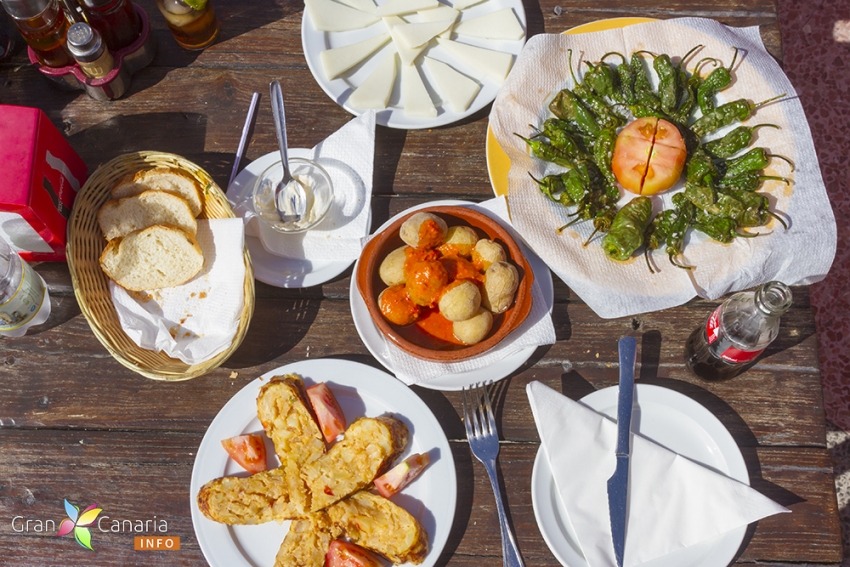Gran Canaria Oilve Oil: Gold from Sunshine
Gran Canaria is lucky that olive trees live a long time and don't bear grudges. For centuries the island's olivos were used as windbreaks and goat shade, their fruit pickled in mojo sauce or left to rot. Then, about 10 years ago, someone decided to crush a few olives and taste the oil.
Gran Canaria olive oil turns out to be delicious and farmers lucky enough to have olive trees on their land are relearning what their grandparents forgot. Our olives have gone from aperitif to the stars of the table.
Old Trees: New Tricks
There were presses in Gran Canaria in the 16th century so the Spanish must have planted olives as soon as they arrived. Most Canarian trees are old varieties that are rare elsewhere in Spain while one, the Verdial de Canarias, is unique to the islands.
These old cultivars give Gran Canaria olive oil a distinctive flavour: Fruity with a herbal edge like the smell or ripe tomatoes. It also has that peppery after taste that tickles the back of your throat: A classic sign of great olive oil.
Gran Canaria's olive trees grow on terrain too steep for mechanical harvesting so the whole crop is hand-picked. Since 100 kilos of island olives yields only 16.5 litres of oil all production is cold-pressed extra virgin olive oil.
The best Gran Canaria olive oil is sold unfiltered (therefore slightly cloudy) in local markets at 5 euros per 250 ml. You can also buy it in shops in the resorts but expect to pay more. Drizzle your oil on a simple salad or eat with crusty bread to appreciate the flavour. Don't combine it with balsamic vinegar (it's too strong and everyone is sick of the stuff).
Olive Country
There are olive trees all over the south east of Gran Canaria from Telde to San Bartolome but Temisas, between Santa Lucia and Agüimes, is the olive's heartland. The island's oldest olive press is in the village and it was here that the industry restarted. You can't miss the olivos fringing the terraced fields as you come into Temisas, especially if the trees are wearing their white hats in the wind. Bars and shops in the village sell the oil.
More To Olives Than Oil
So far the olive boom hasn't affected the supply of fresh olives in the markets. They taste horrible unless you cure them but the process is simple and worthwhile. It takes too long to do on holiday but if you live in Gran Canaria take advantage (and congratulations on a fine choice of island).
Look out for fat olives in the markets in November and December, or head to Temisas for the pick of the crop. The best ones are deep purple with a pointy end and soft, creamy flesh. To cure, nick each one with a knife and put them in an empty garafa (big plastic water bottle). Fill with water salty enough to float an egg and leave for two weeks. Then change the water and wait another two weeks.
To check if your olives are cured taste one: If your mouth puckers up wait another two weeks. When they are ready they are as good as the kalamata olives from Greece sold in little tubs in posh London delis. Bung them in mojo if you must, or store in olive oil or salty water before serving them smugly to your friends.
Gran Canaria's ancient olive trees, freshly pruned and fertilized, are standing proud again: The island has found yet another way of turning sunshine into gold.
Gran Canaria Info recommends:
- Default
- Title
- Date
- Random












